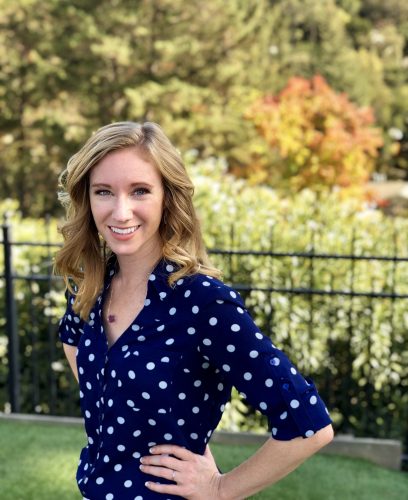You’re more likely to find Dr. Erin Chia (GSAS ’10) in the boardroom than the lab. She is currently the Associate Director of Business Development at Bio-Rad Laboratories, a global leader of life science research and clinical diagnostic products, but her path to the corporate side of science includes a wealth of laboratory experience. As a life-long scientist, she finds her training, including a PhD in Biomedical Engineering from Yale, to be fundamental in how she approaches the corporate world and the business of enabling scientific discoveries.
After beginning her research career in chemical engineering at the University of Iowa, Dr. Chia was awarded one of the first scholarships from the Department of Homeland Security, which funded her research at the Los Alamos and Lawrence Livermore National Laboratories over the subsequent three years. It was at this point that she got her first taste of research outside a purely academic institution, studying biothreats and viral identification. She went on to be the first graduate student in the newly-formed lab of Dr. Tarek Fahmy at Yale, where she developed polymer beads disguised as cells to train the immune system to target and destroy cancer cells. Her work was published in the journal Cell Molecular Therapy, and she was awarded her first US patent, Compositions and methods for adoptive and active immunotherapy.
Upon finishing graduate school in 2010, Dr. Chia was recruited to QuantaLife, an early-stage startup in the San Francisco Bay area founded by her former colleagues at Lawrence Livermore National Laboratory. Here, she helped pioneer a technology known as droplet digital Polymerase Chain Reaction (ddPCR). While traditional PCR allows detection of specific DNA sequences in samples by amplifying those unique sequences and using a fluorescent molecule to detect the amount of this DNA at the end of the reaction, ddPCR gives better information about the frequency of mutations by separating the DNA into tens of thousands of droplets suspended in oil. Dr. Chia said, “Traditional PCR is like standing back and looking at a haystack and estimating the number of needles. ddPCR is effectively walking up and examining each piece, one at a time, to count the needles, but very efficiently.”
After Bio-Rad acquired QuantaLife in 2011 for an impressive $162 million dollars, Dr. Chia joined Bio-Rad to focus on expanding the uses of droplet digital technology in the laboratory setting as well as developing the clinical market for ddPCR. She expects to see droplet digital technology become a standard screening tool for cancer as the translational research community continues to focus on liquid biopsy, early detection, and more sensitive monitoring. Dr. Chia found a particular interest in developing tools to perform groundbreaking research. “In industry you can have a broad impact on scientific progress by developing products that enable scientists. It’s gratifying to see the tools we develop used in powerful ways to advance medical science,” she said.
After several successful years in research and development at Bio-Rad, during which her work resulted in more than eight issued patents, Dr. Chia started looking beyond the lab, citing her interest in the strategic decision-making process in management. During her scientific training, she learned that successful science is based on data-driven decisions, but she has come to realize that sound business decisions rely on more than scientific data. While earning a business certificate from Northwestern’s Kellogg School of Business, she was immersed in the myriad variables guiding corporate strategy. As she transitioned out of the lab and into the boardroom, she found a passion for the integrated approach. “I love being able to work across the organization with colleagues in finance, marketing, legal, and R&D and to synthesize all of that information to drive decisions.” Today Dr. Chia’s role at Bio-Rad includes sourcing and executing strategic acquisitions, identifying and negotiating corporate and academic partnerships, and driving intellectual property strategy to protect and expand Bio-Rad’s global business.
Dr. Chia and her story challenge us to expand our view of where a degree in science can take us. She cites her husband, a patent attorney with a PhD in biomedical engineering from Yale and a law degree from the University of California Berkeley, and other engineering peers who hold various regulatory, medical, and program management positions. Dr. Chia believes that many disciplines benefit from professionals with deep scientific knowledge. “Having rigorous technical training and the ability to ask the right questions to get to the root of the matter is so valuable. If you’re a scientist and you’re thinking about where to go with your career, I encourage you to consider places beyond the lab.”

